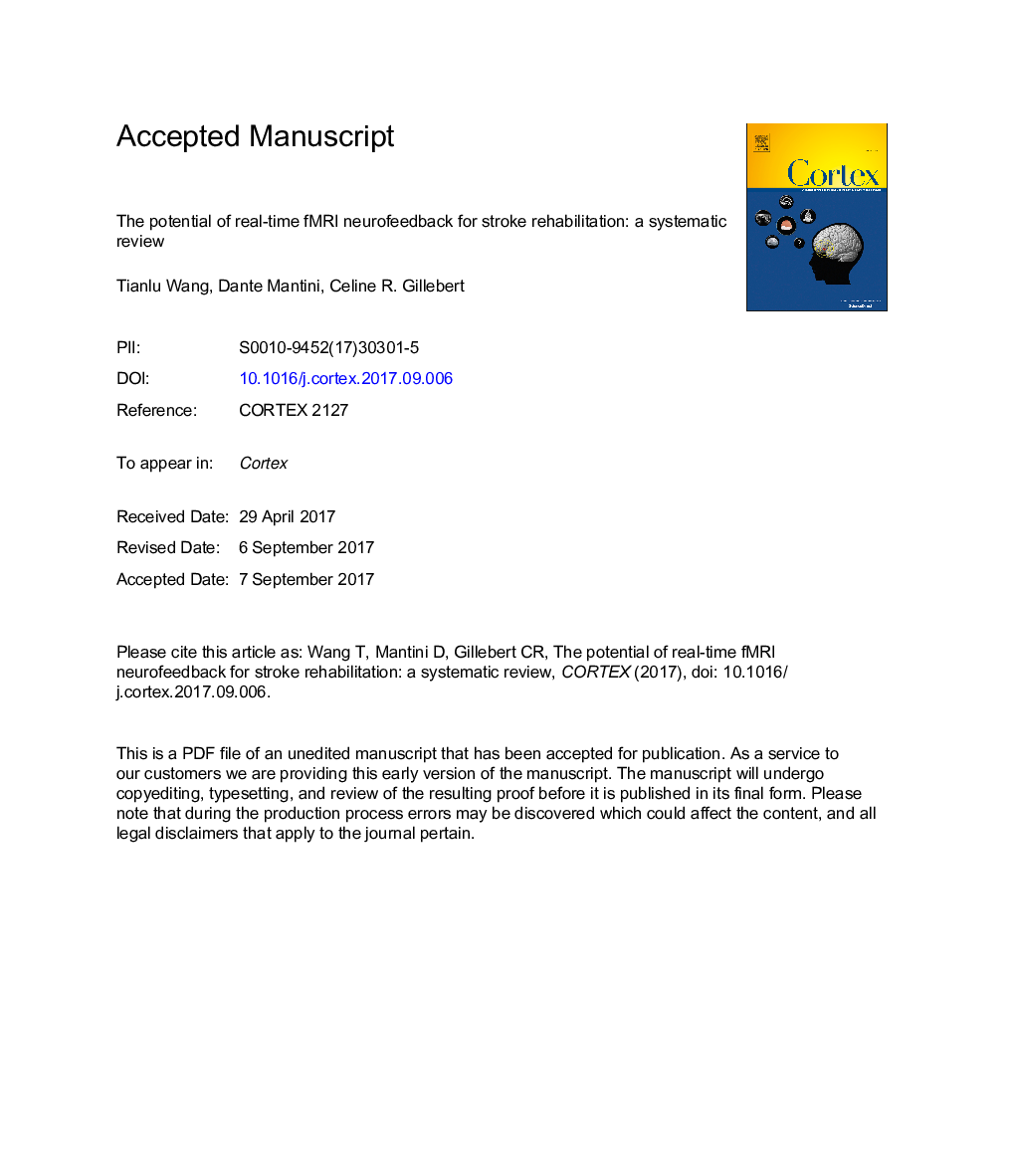| Article ID | Journal | Published Year | Pages | File Type |
|---|---|---|---|---|
| 11012024 | Cortex | 2018 | 41 Pages |
Abstract
Real-time functional magnetic resonance imaging (rt-fMRI) neurofeedback aids the modulation of neural functions by training self-regulation of brain activity through operant conditioning. This technique has been applied to treat several neurodevelopmental and neuropsychiatric disorders, but its effectiveness for stroke rehabilitation has not been examined yet. Here, we systematically review the effectiveness of rt-fMRI neurofeedback training in modulating motor and cognitive processes that are often impaired after stroke. Based on predefined search criteria, we selected and examined 33 rt-fMRI neurofeedback studies, including 651 healthy individuals and 15 stroke patients in total. The results of our systematic review suggest that rt-fMRI neurofeedback training can lead to a learned modulation of brain signals, with associated changes at both the neural and the behavioural level. However, more research is needed to establish how its use can be optimized in the context of stroke rehabilitation.
Related Topics
Life Sciences
Neuroscience
Behavioral Neuroscience
Authors
Tianlu Wang, Dante Mantini, Celine R. Gillebert,
